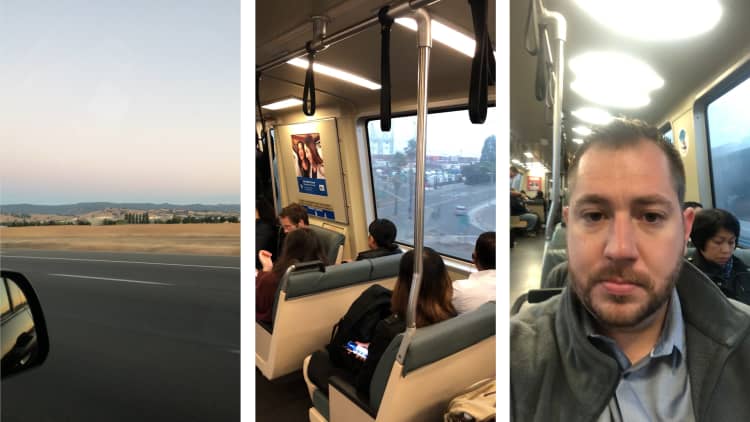In Washington, D.C., the median price for a home is $585,000, according to real-estate website Zillow, and the median rent is $2,700. That's nearly twice the national median of $278,900 and $1,695, respectively. In the most expensive ZIP code in the nation's capital, housing prices go dramatically higher: It can cost nearly $1 million to buy a home.
Still, while residents must contend with some of the most expensive real-estate prices in the country, as well as steep tax burdens in the surrounding areas, people who live in D.C. say their No. 1 source of financial stress isn't taxes or the cost of housing. It's debt.
That's according to financial site GOBankingRates, which conducted a study of more than 2,000 people from every state and D.C., "to pinpoint what's causing the worst financial fears and stress among Americans."
Respondents could choose one of the following options: "debt," "education," including things like college expenses, "everyday costs," including groceries and utilities, "family," including child care and divorce, "health care," "housing," or "taxes."
D.C. residents chose debt.

"The nation's capital is a place with one of the highest living costs in the U.S.," says GOBankingRates. "As a result, residents might be relying on debt to help cover costs."
But while being in the red is a major concern for many Americans, and for millennials in particular, the No. 1 cause of financial stress in the country overall isn't debt; it's the everyday costs of living, according to the study.
About a third of all respondents chose everyday costs as their top financial stressor, including those in notoriously pricey states like New York and California. Nearly 30 percent chose debt, followed by 13 percent who chose housing, 9 percent who chose health care, 7 percent who chose education, 6 percent who chose family and only 4 percent who chose taxes.
Of course, housing prices and the cost of living can . But no matter where you fall on the map, and employing can help you save in the long run. Here are .
Like this story? Subscribe to CNBC Make It on YouTube!
Don't miss: This is the most expensive ZIP code in California—and it's not in San Francisco or LA
Video by John Fazio



